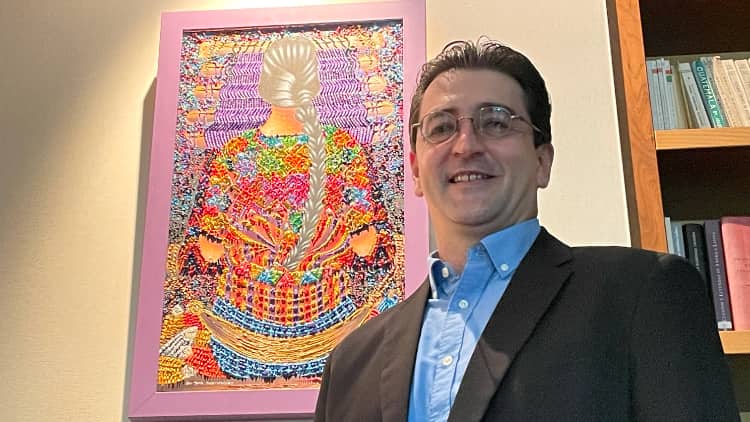Juan Luis Barrios
President of the Guatemalan National Coffee Association
Juan David Latorre
The president of the National Coffee Association (ANACAFÉ), Juan Luis Barrios, highlights for The Diplomat the variety of coffees that his country produces, with 300 microclimates, in a sector that employs more than 125,000 families.
What is the function and objective of ANACAFÉ?
The National Coffee Association is made up only of coffee producers, as exporters and roasters have their own association. We bring together the more than 125,000 coffee-producing families in the coffee sector. Our function is not to buy and sell coffee, but to promote Guatemalan coffee.
ANACAFÉ’s function is to open up the range of marketing possibilities so that the producer can make the decision that suits him best. More or less 97% of the producers are small scale (less than 5 hectares of cultivable land), 60% of the municipalities in Guatemala produce coffee. As ANACAFÉ, we have a great responsibility for the development of the country and we know very clearly our role in supporting producers, especially small producers, so that they can be profitable and facilitate their own development, both at family and human level.
The importance of the coffee sector in Guatemala is such that it will influence other sectors of Guatemalan society, right?
We also support the commercial work with a very important part of attention to the environment, because we promote good agronomic practices for the care of nature. We also carry out responsible social work with our department called Funcafé, where we cover three areas: education, health, and food and nutritional security. Our goal is that Guatemalan coffees occupy a distinctive place in the minds and hearts of consumers, mainly in growing consumer markets such as youth.
All Guatemalan coffees develop a delicious aroma, bright acidity, consistent body and a delicate sweetness. The international industry, the specialised market, roasters and importers recognise the quality of our product, and this is due to the successful regionalisation and promotion strategy that ANACAFÉ has implemented over the last 25 years with the Guatemalan Coffees brand.
A study was made on the effect of coffee on the country’s economy and the result was that our sector contributes 7 cents for every quetzal that circulates in Guatemala, directly or indirectly. The cultivation and production of coffee in our country accounts for around 2 or 3 percent of the country’s GDP.
Do you think coffee could be the best possible ambassador for Guatemala abroad?
Coffee has the advantage that it doesn’t fight with anyone. There are various studies that show that, with moderation, coffee is healthy and brings many benefits. That is to say, nobody can accuse us that it is a product that is harmful to our health. It is a very noble product. For this reason, and because of the size of production we have in the country, we do believe that coffee can be a very good ambassador for Guatemala. With this in mind, ANACAFÉ has signed an agreement with our Ministry of Foreign Affairs and the Guatemalan Institute of Tourism, as both institutions recognise that coffee is an excellent ally and ambassador for Guatemala.
What is the state of Guatemalan coffee exports?
Our main foreign market is the United States, although we also export to Europe. Our cargo arrives mainly in Belgium and the Netherlands, which are the receiving ports for the goods, which are then distributed to other countries in the rest of the continent. Spain receives less than 1% of Guatemala’s total exports.
Does the coffee sector also have a direct influence on the tourism sector?
Various projects are underway to inaugurate coffee routes throughout Guatemala. We are studying the different routes, taking into account the infrastructures, communication routes and services for tourists. And not only for foreign tourists, as much emphasis is being placed on facilitating and increasing national tourism”.
Currently, the coffee sector in Guatemala generates around half a million jobs, mainly in medium and large production units. In the coffee year 2020-2021 (data from October to 8 September), 4.43 million quintals of gold coffee (3.39 million 60 kg bags) have been exported, 11.51% more than in the same period of the previous harvest, for an amount of USD 817.89 million, which is 30.86% more than in the same period of the previous coffee year.







